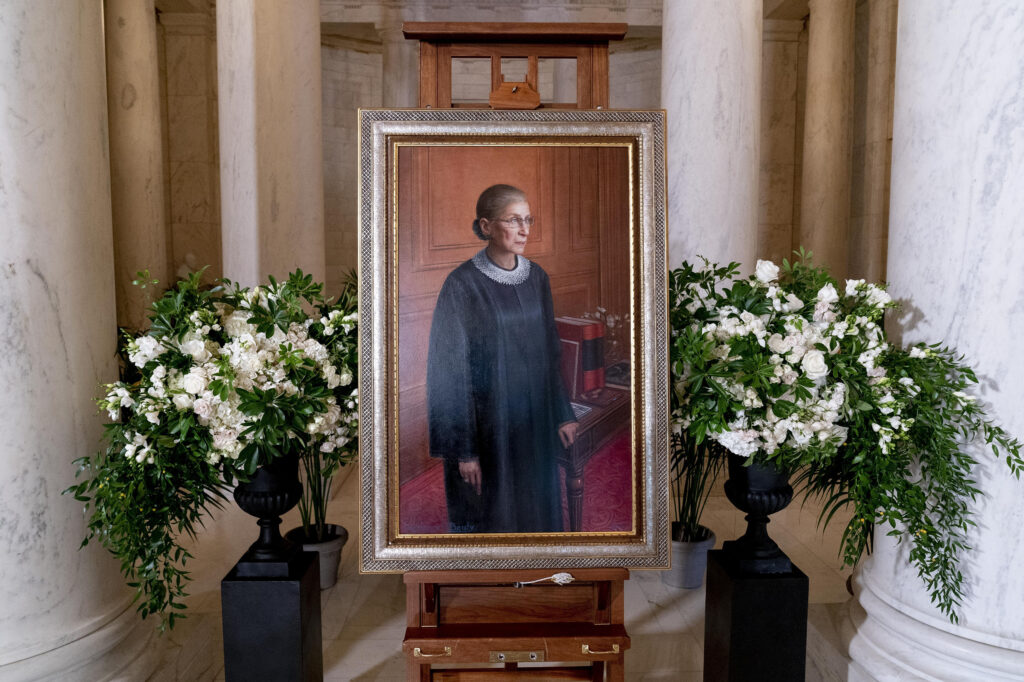It was not until 1920 that women even received the right to vote. For many years after 1920 women, although they had the right to vote, still struggled to be able to receive their own credit cards, mortgages and receive equal pay. Supreme Court justice, Ruth Bader Ginsburg, who recently passed away on Friday, Sept. 18, was one of the main figures that played a role in the pursuit of equality for women in the U.S. Now 100 years later, more women than ever are not only voting but also running for office. According to UWG political science professor, Karen Owen, more women are running for office. However, being elected into office is still an ongoing struggle.
“The challenges for most women involved in politics is that there is a double standard for which they have to run, so they have to find that balance,” said Owen. “They have to project themselves as having the capability and experience to serve in office.
“In this climate for 2020 women are facing the difficulty of a nation that is very divided over issues, and they have to determine where they find themselves in those issues,” Owen continued. “They also have to determine how they can bring that different perspective they have on the issues that are being addressed.”
Women in politics, as noted by Owen, have had struggles in the past of being taken seriously and being able to get their opinion across on certain issues. However, during this year female politicians have received a wonderful opportunity as a result of the COVID-19 pandemic. Although it is a difficult time for many, women in politics have been able to use this opportunity for their voice to be heard, as they are normally more knowledgeable in issues such as family and healthcare.
“It’s an issue (COVID) that they can have a very strong voice at the table on,” said Owen. “It relates so significantly to health and to family—issues that they have been typically stronger on and more vocal about.
“I think that it allows that different voice to be amplified in the conversations because COVID and the pandemic has shown how difficult it is for women,” Owen continued. “It is difficult for women when there are inequities in society, specifically inequities at the economic level and how those have been more pronounced. And so for women in politics, it allows them to really be able to stick to that perspective and they probably have more credibility in this conversation.”
Sen. Kelly Loeffler has been brought into the spotlight recently because she is up for election in November to keep her seat as a senator for Georgia. Leoffler is a republican, and holding office as a female republican senator is not something that is very common within the political arena.
“Women on the right—so republican or women who hold conservative values—there are fewer of them who are actually serving in office nationally,” said Owen. “Identity politics has always been a part of the left and what the democrats have captured on, and historically, that has not been the same on the right.
“For Sen. Loeffler I would say that it’s not a rarity, but for Georgia it was the first time that a woman on the right was elected and appointed to the Senate,” continued Owen. “The interesting part of this election coming up will be whether Leoffler can provide a strong conservative credibility to the voters to where they want her to stay in office. I think for Leofflers situation, because she was appointed, it’s an even more difficult decision for her to explain why she should have the job now and why voters should support her.”
Although it is hard for Loeffler and many female politicians to win an election, there are still beneficial changes that have come to pass in the last 100 years for women in politics. These last few years have been a progressive shift for women in politics towards political equality and equal representation in office—a legacy that Ruth Bader Ginsburg helped to create.
“This year we have again seen an increase in the number of women running for office, which is phenomenal,” said Owen. “That means that more women are encouraged that they can participate. In 2018 we had more women run, and now in 2020 we are seeing even more women run, and that’s a good thing.”
You may also like
-
West Georgia Outdoors Lake Day Gives Students a Chance to Destress Before Finals
-
UWG Student Becomes Finalist at International Collegiate Marketing Conference
-
Wolves Don’t Waste Provides Food 24/7 For UWG Students
-
“Take Back The Night” Spotlights Sexual Assault Awareness Month
-
Carroll County Animal Shelter Launches new Adoption Program
